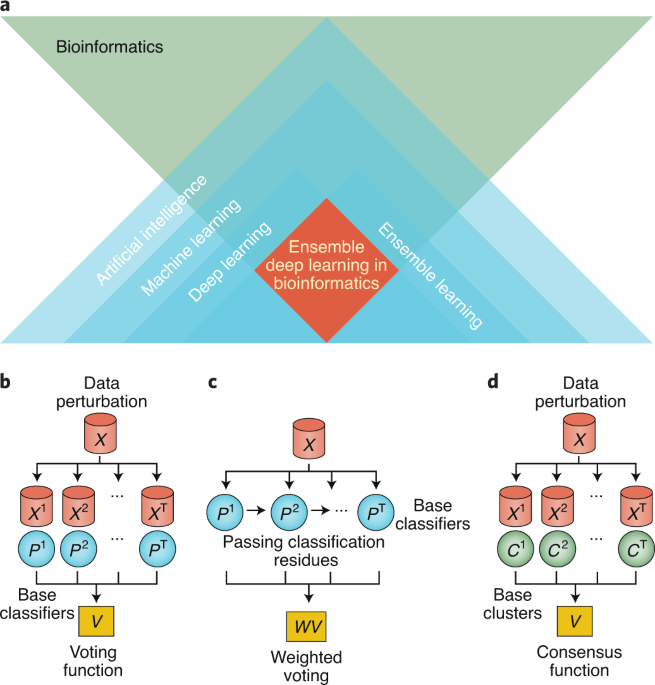Bioinformatics Tutor for Beginners
Bioinformatics Tutor for Beginners
Blog Article
An Unbiased View of Bioinformatics Tutor
Table of Contents10 Easy Facts About Bioinformatics Tutor ShownThe Of Bioinformatics TutorBioinformatics Tutor for DummiesThe Main Principles Of Bioinformatics Tutor About Bioinformatics Tutor
First job growth is rather taxing, as it includes cautious planning of the subject, structuring of deliverables, and consideration of the abilities and experience degrees of individuals. When a project has actually been plainly defined and implemented, it has the possible to be recycled in future sessions with only minor alterations to reflect updates in the area or fit differences in individual backgrounds. This makes project-based learning a efficient and lasting mentor technique over time, particularly in quickly developing techniques like bioinformatics.To make sure continuity and reproducibility of understanding, supplying shared laboratory notebooks-- either digital or physical-- is essential. These note pads function as joint logs where students can tape-record their progress, code, methods, and results throughout the training course. Not just do they strengthen learning by motivating documentation and reflection, however they additionally act as post-course reference materials that individuals can speak with in future research study or scholastic projects.
Mentors play an essential role in the success of project-based courses. Coaches also act as duty versions and influence trainees to continue pursuing occupations in computational biology and associated fields.
Not known Details About Bioinformatics Tutor
Another key element of the learning procedure is offering participants the possibility to provide their work to others, particularly to a target market past their instant task team. Last presentations or mini-conferences permit students to articulate their findings, get constructive responses, and gain confidence in connecting scientific web content. This discussion component is often a preferred amongst pupils, as it validates their initiatives and highlights the real-world significance of their work.
The performance of this technique was evidenced by the extremely positive comments obtained after the preliminary training course was provided. The success motivated repeat offerings of the exact same course layout in 2015 and 2016. Each iteration of the program was fine-tuned based upon participant comments and evolving finest practices in rearing. These adaptations made sure that the core objectives-- hands-on discovering, cooperation, and applied analytic-- stayed undamaged while expanding the depth and breadth of subjects covered.
A notable visualization that caught individual sentiment was a word cloud created from reactions to the 2014 end-of-course study. This aesthetic comments strengthened the program's emphasis on experiential knowing and mentor support.
The payments of people such as Rustici, G., Orchard, S., Cowley, A., and Twells, R., in addition to various other participants of the EBI user-training-working team, were crucial in improving the training course framework and material. Their insights aided form a versatile and inclusive model that can be adjusted to different institutional and regional contexts.
Bioinformatics Tutor for Beginners

Jones, Rasmussen, and Moffitt (1997) likewise promoted for interdisciplinary knowing through collaborative job work, noting its ability to mimic professional environments and prepare pupils for future scholastic or market functions. In a detailed evaluation, Thomas (2000) examined multiple studies on PBL and ended that pupils not just carry out well academically however also create a much deeper understanding of the subject issue and improved teamwork abilities.
In the context of bioinformatics education and learning, ingenious techniques like class video games More about the author and simulation-based training have additionally been used. For example, Schneider and Jimenez (2013) introduced using interactive video games to instruct organic information integration, making it possible for pupils to comprehend complex principles with experiential knowing. This type of gamification complements the hands-on understanding highlighted in project-based courses by presenting an element of enjoyable and competition, which can additionally enhance interaction.
Going back to the program reviewed right here, the lessons picked up from the implementation of project-based understanding in a bioinformatics setting have broader effects for other STEM areas. The methodology highlights not simply technological proficiency, yet likewise interaction, collaboration, and vital reasoning-- skills that are progressively valued in both academic community and industry.
The Facts About Bioinformatics Tutor Uncovered
The scalability of the course style likewise makes it a sensible model for other organizations. With proper personalization based upon regional requirements, available resources, and participant accounts, the structure can be reproduced or adjusted for usage in various other clinical domain names. In addition, the incorporation of organized mentorship and evaluation techniques assists guarantee constant high quality and quantifiable knowing outcomes.

To conclude, project-based discovering in bioinformatics provides an effective method to teaching complex, interdisciplinary web content in such a way that is both obtainable and intellectually promoting. By highlighting partnership, functional application, and vital inquiry, such initiatives not just improve individual understanding however likewise contribute to the farming of a new generation of cutting-edge and proficient researchers.
4 Simple Techniques For Bioinformatics Tutor

One more key element of the discovering process is supplying individuals the possibility to present their job to others, specifically to an audience past their prompt project group.In the wider academic literary works, project-based knowing (PBL) has actually been extensively studied and confirmed as an efficient method for promoting deep understanding, critical thinking, and transferable abilities. Adderley et al. (1975) highlighted the worth of project techniques in higher education and learning, keeping in mind that they promote active understanding and autonomy. Schneider and Jimenez (2013) presented the usage of interactive games to instruct organic data combination, enabling trainees to realize complex ideas via experiential knowing.
Report this page